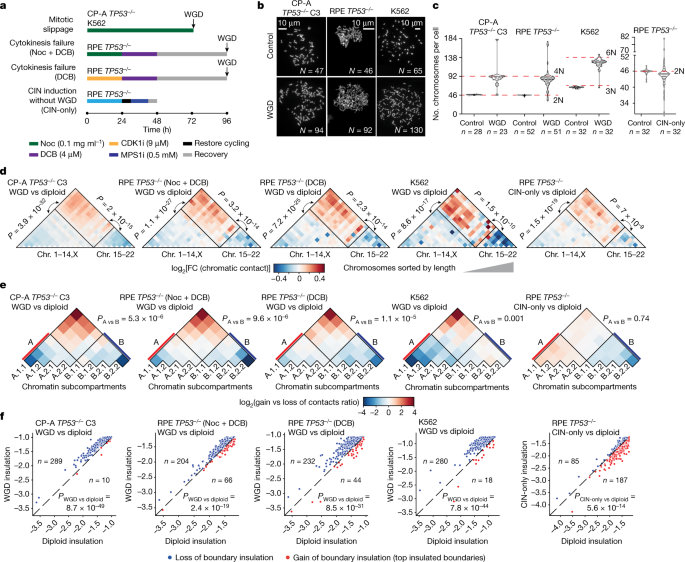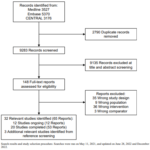2023-03-28 スイス連邦工科大学ローザンヌ校(EPFL)
◆人間のすべてのがんの約30%で起こる共通のイベントは、「全ゲノム倍化」(WGD)であり、これにより細胞内の染色体全体が複製されます。WGDは、細胞内でゲノム不安定性を引き起こし、がんの発生に寄与する染色体変異やその他の突然変異を引き起こす可能性があります。
◆EPFLのElisa Oricchio氏とUNILのGiovanni Ciriello氏率いる研究チームは、WGDががんを引き起こす方法について新しい手掛かりを発見しました。Natureに掲載された研究では、WGDが「クロマチン分離の喪失」という現象を介して細胞内部のクロマチンの3D構造に影響を与えることが示されています。
◆研究者たちは、腫瘍抑制遺伝子p53を欠く細胞を調べました。これらの細胞はWGDに陥りやすくなっています。彼らは、WGDがループやドメイン、コンパートメントなどのクロマチン構造要素の分離を減少させることを発見しました。これにより、細胞内で慎重に組織化されたクロマチンが混合されます。
◆その結果、通常別々に保持されている遺伝子物質が混ざり合い、3D空間で遺伝子領域の位置が変わり、「サブコンパートメント再配置」として知られるものになります。これは、がん発生に寄与する遺伝子であるオンコジーンの活性化を促します。
◆研究者たちはまた、WGDがクロマチン構造に与える影響は主に染色体変異とは無関係であることも発見しました。
<関連情報>
- https://actu.epfl.ch/news/how-genome-doubling-helps-cancer-develop/
- https://www.nature.com/articles/s41586-023-05794-2
全ゲノム倍加が発がん性のクロマチン分離の喪失を促進する Whole-genome doubling drives oncogenic loss of chromatin segregation
Ruxandra A. Lambuta,Luca Nanni,Yuanlong Liu,Juan Diaz-Miyar,Arvind Iyer,Daniele Tavernari,Natalya Katanayeva,Giovanni Ciriello & Elisa Oricchio
Nature Published:15 March 2023
DOI:https://doi.org/10.1038/s41586-023-05794-2

Abstract
Whole-genome doubling (WGD) is a recurrent event in human cancers and it promotes chromosomal instability and acquisition of aneuploidies1,2,3,4,5,6,7,8. However, the three-dimensional organization of chromatin in WGD cells and its contribution to oncogenic phenotypes are currently unknown. Here we show that in p53-deficient cells, WGD induces loss of chromatin segregation (LCS). This event is characterized by reduced segregation between short and long chromosomes, A and B subcompartments and adjacent chromatin domains. LCS is driven by the downregulation of CTCF and H3K9me3 in cells that bypassed activation of the tetraploid checkpoint. Longitudinal analyses revealed that LCS primes genomic regions for subcompartment repositioning in WGD cells. This results in chromatin and epigenetic changes associated with oncogene activation in tumours ensuing from WGD cells. Notably, subcompartment repositioning events were largely independent of chromosomal alterations, which indicates that these were complementary mechanisms contributing to tumour development and progression. Overall, LCS initiates chromatin conformation changes that ultimately result in oncogenic epigenetic and transcriptional modifications, which suggests that chromatin evolution is a hallmark of WGD-driven cancer.


